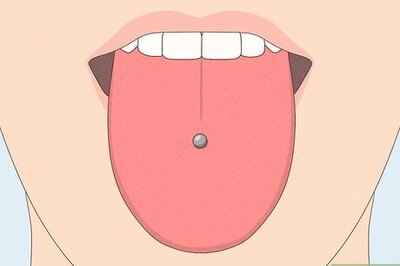
views
It might be overwhelming to become a father at the age of 40, especially if you have worries about your health and your capacity to keep up with your child. Age-related declines in sperm quality are common. In particular, as you age, your sperm’s shape and motility are both likely to decrease, making it more challenging for them to fertilize an egg. Your testosterone levels will probably start to fall around the age of 40. Your libido could drop as a result, or regular sex might become more challenging. Older males are more likely to suffer from diseases that lower fertility. The fertility process might also be hampered by some drugs for medical issues that arise later in life.
While having these concerns is quite reasonable, there are also lots of benefits to becoming a father at this time. Becoming a father at 40 can be highly rewarding if you put an emphasis on healthy living, self-care, and strong communication with your partner. Dr Sonal Singhal, Senior Consultant, Obstetrician & Gynaecologist, Motherhood Hospital, Gurugram shares what you need to know when planning to be a father in your 40s.
Listed below are the risks associated with becoming a father after 40
Children whose fathers are older do tend to have a higher prevalence of several hereditary disorders. As you get older, particularly in your 40s and beyond, you may have a slightly higher risk of having a baby with the diseases listed below:
- Autism spectrum disorder
- Schizophrenia, however the risk remains low.
- Down’s syndrome, if your partner is over 35 years of age.
- A low risk of a particular type of leukemia
You should consider the below listed factors if you are planning on becoming a father in your 40’s:
- Eating Healthy HelpsMen’s sperm production, both in terms of quantity and quality, can be influenced by what they eat. Numerous essential nutrients, including omega 3 fatty acids, folate, zinc, selenium and protein are needed for healthy sperm. According to studies, males who produce more healthy sperm eat more fruits, vegetables, whole grains, legumes, low-fat dairy, and seafood. It is advisable to lessen your intake of red and processed meats, processed food, sweets, and beverages sweetened with sugar. Improved reproductive results result from higher-quality sperm.
- Quit Smoking, Reduce AlcoholIn comparison to non-smokers, males who smoke typically have lower-quality sperm. Additionally, if your partner does get pregnant, passive smoking can harm both the mother and the unborn child. Also, drinking excessively can reduce your sperm quality. The best time to stop smoking and cutting down on alcohol is right now in order to safeguard your family and enhance your and your child’s health.
- Your Mental Health is equally importantMen are under more pressure and stress than ever, and often not enough is talked about the mental health problems men also face. These difficulties frequently grow more important as we age, and you might worry that having a kid will either make them worse or cause stress-related mental health problems. It is important to manage stress and take care of your mental health as it affects the sperm quality and count.
- Keeping your groin cool helpsSperm production occurs at a higher rate when your testicles are a little bit cooler than the rest of your body. Therefore, you might want to avoid doing things like using a laptop when it’s on your lap, sitting still for a long time, or doing things like those while it’s hot outside. Although the evidence is still conflicting, it could be worthwhile to give loose-fitting pants a shot.
- Certain medications can affect your fertilityCertain age-related or lifestyle disorders might result in you taking medications for a long time. Blood pressure medication, alpha-blockers, certain painkillers, antidepressant, chemotherapy treatment can affect your fertility. Hence it is important to consult your doctor before you plan on becoming a father.













Comments
0 comment